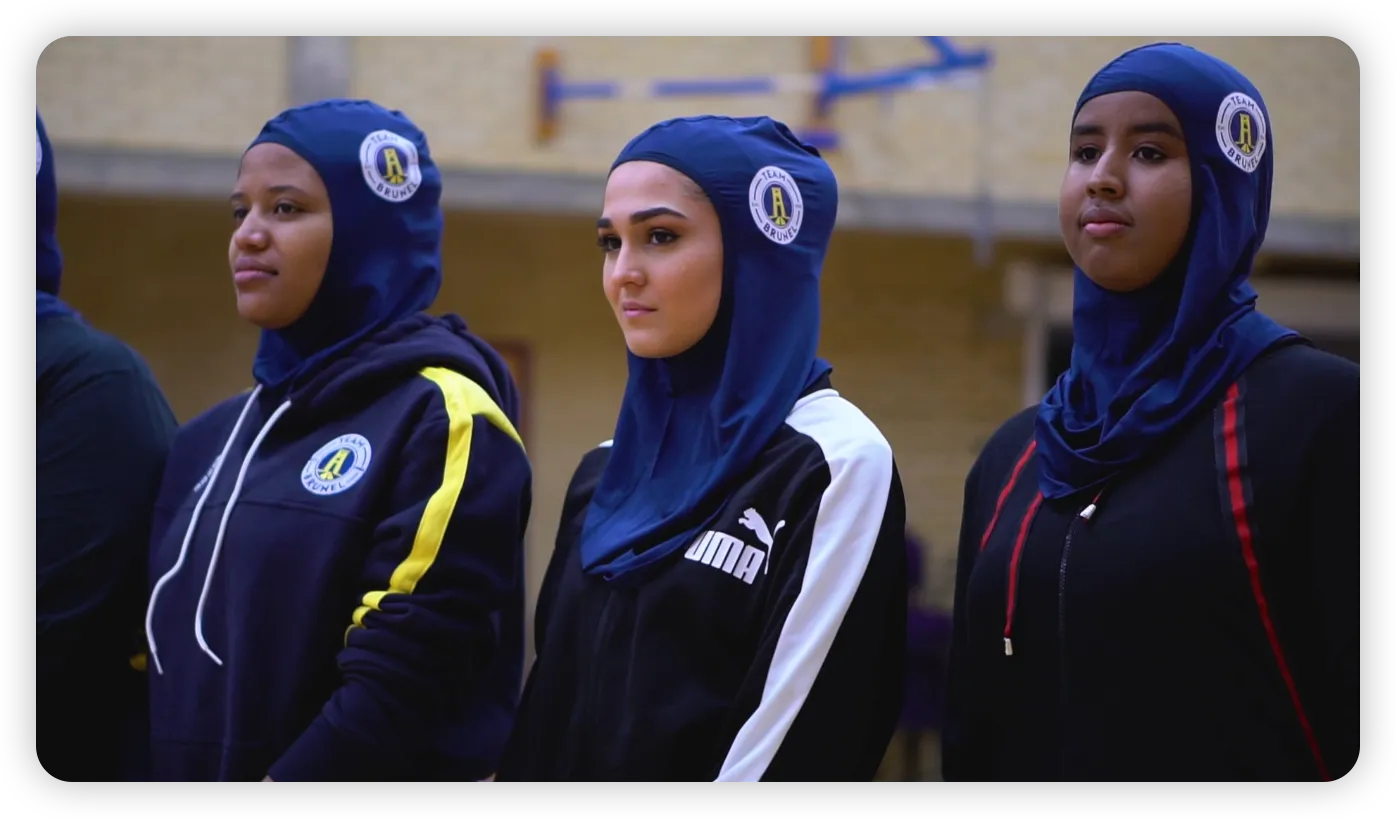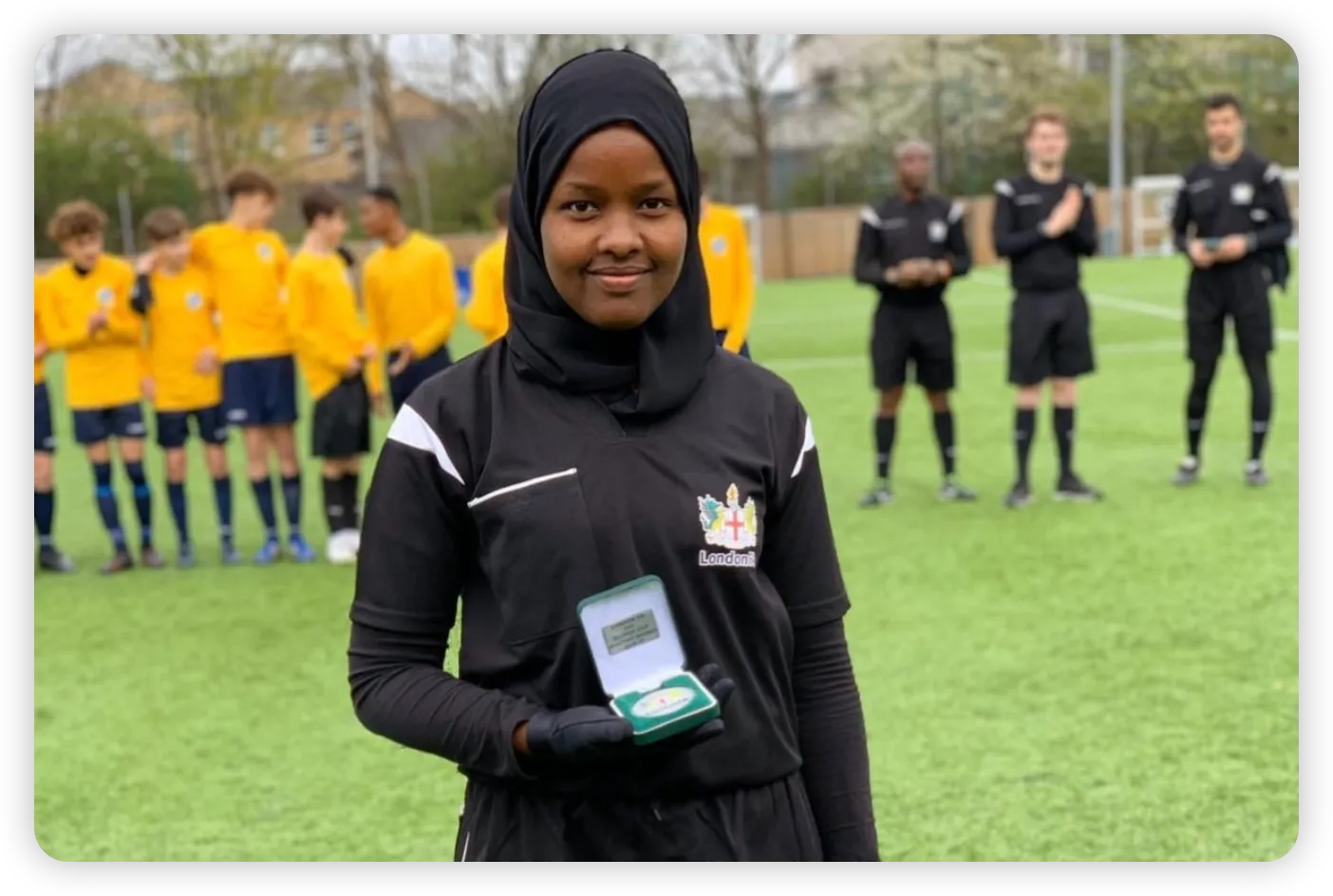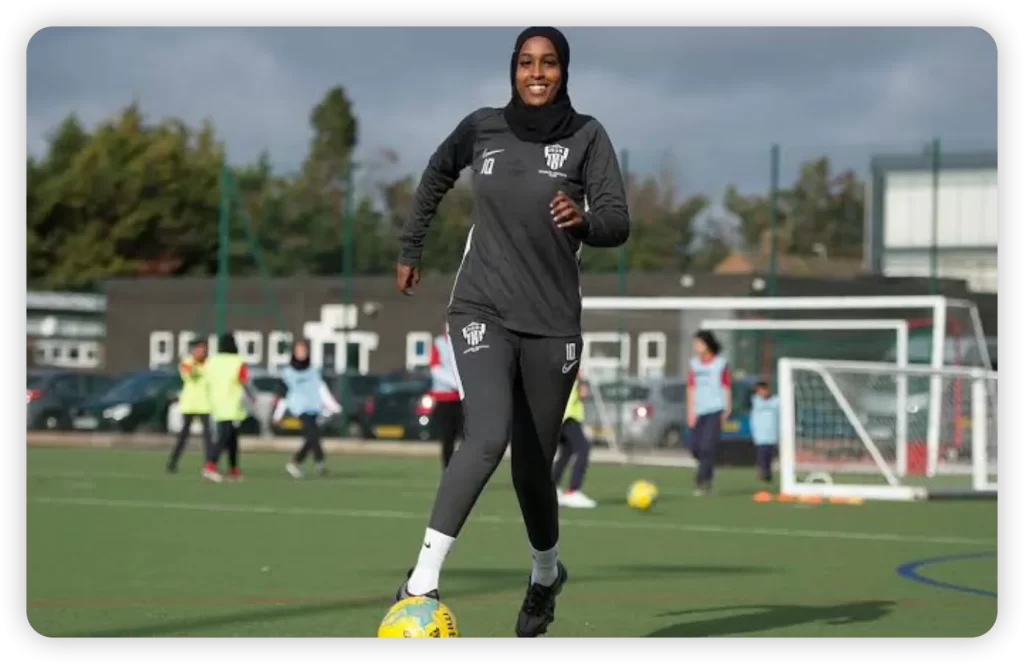Muslim Footballer Triumphs Over Uniform Controversy
In a landmark moment for religious inclusivity in sports, Iqra Ismail has confirmed her return to football—this time, wearing tracksuit bottoms that align with her faith. The 24-year-old athlete, coach, and 2019 Football Black List honoree faced exclusion earlier this week when a referee barred her from playing for United Dragons in a Greater London Women’s Football League match unless she wore shorts. The incident sparked widespread debate, prompting swift action from the Football Association (FA) and Middlesex County FA.
Ismail took to social media to express gratitude for the outpouring of support, revealing that senior FA officials had intervened to ensure such discrimination wouldn’t recur. “As of this weekend, I’ll be back on the pitch in my tracksuit bottoms,” she announced. “This isn’t just about me—it’s about creating safe spaces for all women who want to play football without compromising their beliefs.”

The Incident That Shook the Football Community
During a match against Tower Hamlets FC, Ismail was denied entry as a substitute after refusing to swap her tracksuit bottoms for shorts. The referee cited a league directive—later disputed by the FA—claiming shorts were mandatory. Ismail, who has played in the league for five years wearing modest attire, described the moment as “isolating and surreal.”
The FA swiftly apologized, clarifying that their policies explicitly permit religious attire. Earlier this year, Ismail had raised concerns, leading the FA to remind all county associations and referees of this allowance. Yet, the incident exposed gaps in enforcement. “The support from the FA has been consistent,” Ismail noted, “but education at the grassroots level needs work.”
Why This Victory Matters Beyond the Pitch
Ismail’s case isn’t isolated. Muslim female athletes globally face similar barriers, from FIFA’s former hijab ban to local league restrictions. Dr. Sarah Ahmed, a sports sociologist, explains: “Uniform policies often overlook cultural diversity. Ismail’s advocacy pushes football toward true inclusivity.”
The FA’s proactive stance—reiterating guidelines and engaging with Ismail—sets a precedent. Leagues like the Greater London Women’s Football League must now ensure referees understand these rules. As Ismail emphasized, “This journey isn’t over. I’ll keep fighting for others like me.”
Mcw casino Take: The Road Ahead for Inclusive Football
Ismail’s resilience highlights a critical need for systemic change. Key takeaways:
- Policy vs. Practice: While the FA supports religious attire, consistent referee training is vital.
- Representation Matters: Athletes like Ismail challenge stereotypes, inspiring future generations.
- Global Impact: Her story echoes beyond the UK, urging federations worldwide to prioritize inclusion.

Join the Conversation
What’s your experience with inclusivity in sports? Share your thoughts below or tag Mcw casino on social media. For more groundbreaking sports analysis, stay tuned!
#FootballForAll #ReligiousInclusion #Mcw casino

